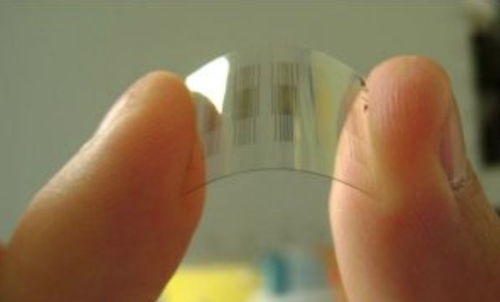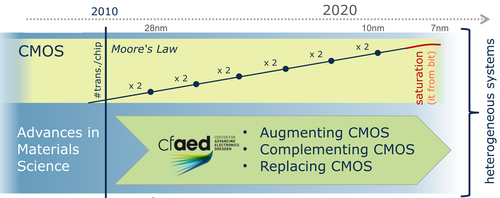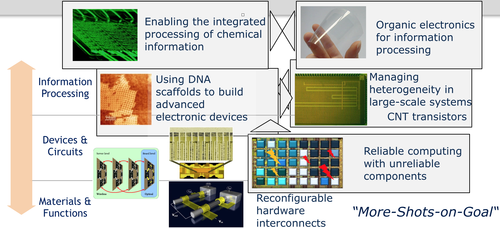Organics To Extend Moore's Law
Source: R. Colin Johnson

High performance and yet flexible and transparent electronics is possible once the necessary infrastructure is created, according to TU Dresden.
(Source: TU Dresden, used with permission)
Germany--Flexible and transparent electronics was the theme this year here at the SEMICON Europa 2015 (Oct. 6-8, Dresden, Germany) and the nearby University of Technology (TU Dresden) is also committing to the gamble, going "all in" for using organic devices with government funding of $38 million through 2017. In all, TU Dresden's Microelectronics Academy has 60 investigators, is cooperating with 11 institutions making up 300 scientists total dedicated to organic, transparent and flexible electronics.
"Organic semiconductors will be the crude oil of the information age by the time Moore's Law runs out at the 7-nanometer node," Stefan Mansfield, chairman of organic devices at TU Dresden told EE Times in an exclusive interview. "We are building an infrastructure that will augment CMOS with organic materials to get beyond 7-nanometer using silicon nanowires, reconfigurable organic circuitry and carbon nanotubes."

Advances in organic materials will enable Moore's Law to be extended beyond the 7-nanometer node according to TU Dresden's Microelectronics Academy.
(Source: TU Dresden, used with permission)
These goals will be realized, according to Mansfield using transparent electronics for information processing, DNA scaffolds for very advanced electronics and CPUs that process chemical signals. To manage all this heterogeneity in large scale systems will require highly adaptive, energy efficient and failsafe designs--which is what TU Dresden is designing today to be ready for tomorrow with a multi-disciplinary team of physicists, chemists, biologists, computer scientists and electrical engineers.
"Today organics are slow, but their cost is very cheap. We plan to make them faster by using ordered structures similar to how you make single crystalline silicon, but we are not there yet," Mansfield told EE Times.

TU Dresden's Microelectronics Academy and collaborators are developing all the bits an pieces necessary to keep micro electronics growing with organic materials.
(Source: TU Dresden, used with permission)
Professor Jeronimo Castrillon, chairman for compiler construction at TU Dresden, is also participating in the effort by adapting information processing methods to organics that overcome the limitations of CMOS.
"I am trying to adapt all the standard software procedures to organic materials," Castrillon told EETimes in an exclusive interview. "We are creating highly adaptive efficient computing [HAEC] using parallel programming models and realtime OSs."
Castrillon is also using concepts from computational biology, putting organic circuitry on glass substrates--trying to do information processing that overcomes the expense of semiconductors today. All the standard software procedures will be performed by organic materials, from compilers to application programs.
"The goal is to minimize energy while building all the tools we use today," Castrillon told us, including parallel programing models, software synthesis and hardware-description languages (HDL) to build new-age applications like labs-on-a-chip.
| }
|